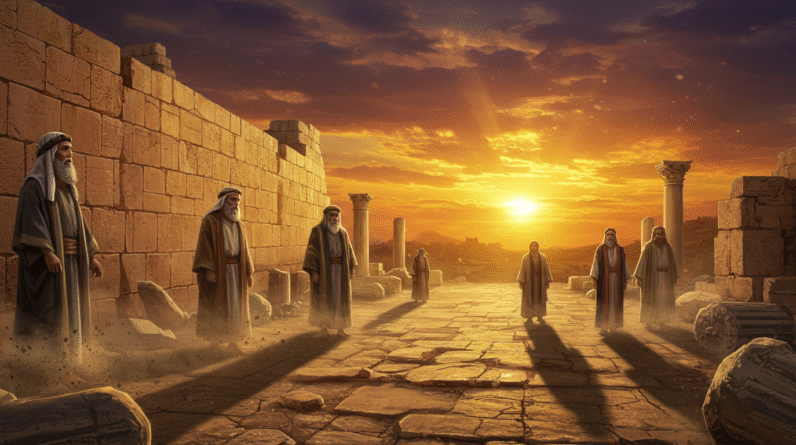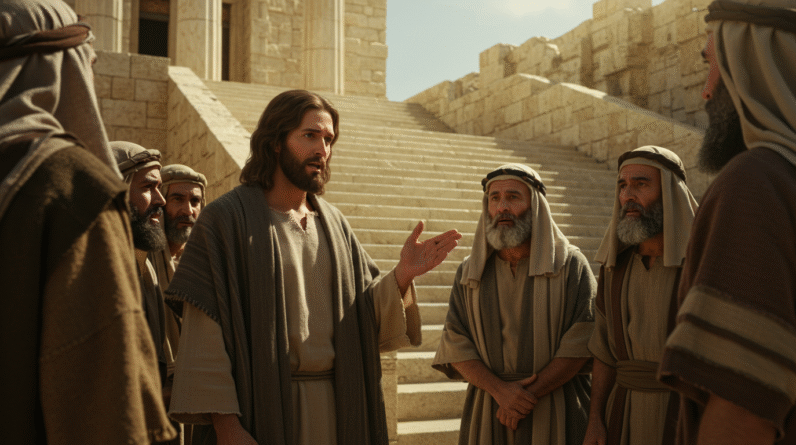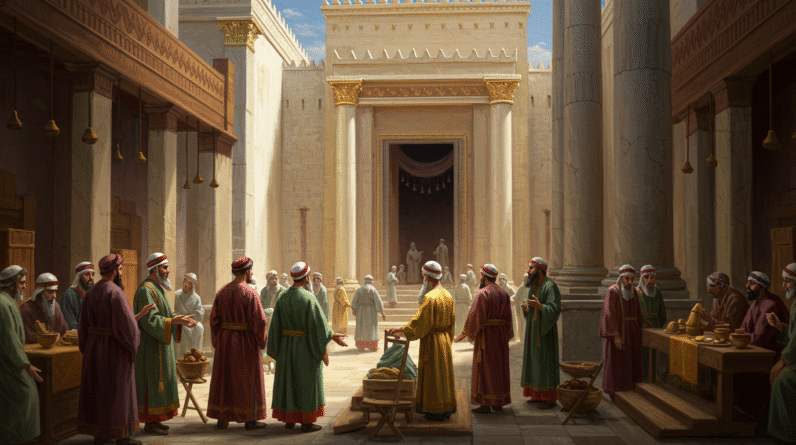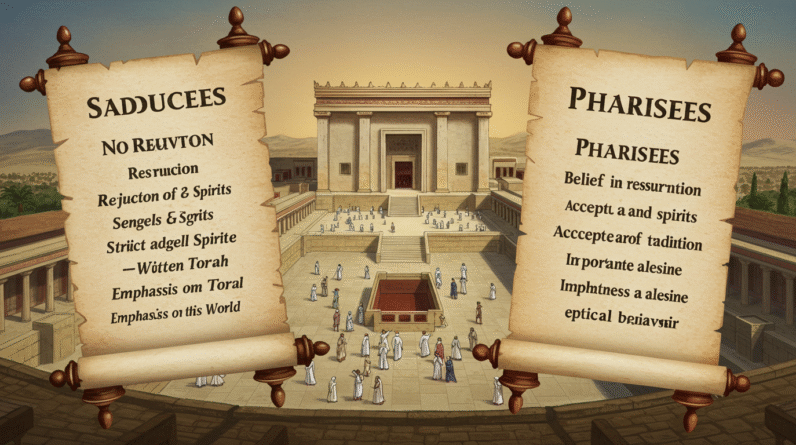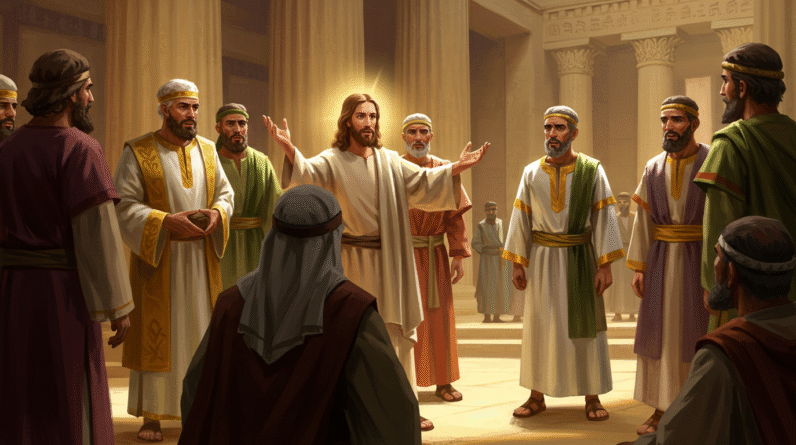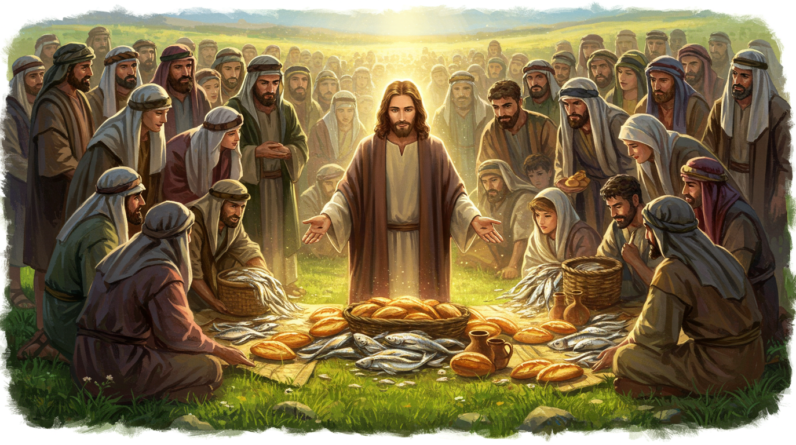Explore the Zealots’ fervor in Luke 6:15 through Simon the Zealot. Dive into their revolutionary spirit, faith, and transformative journey from conflict to spiritual peace.
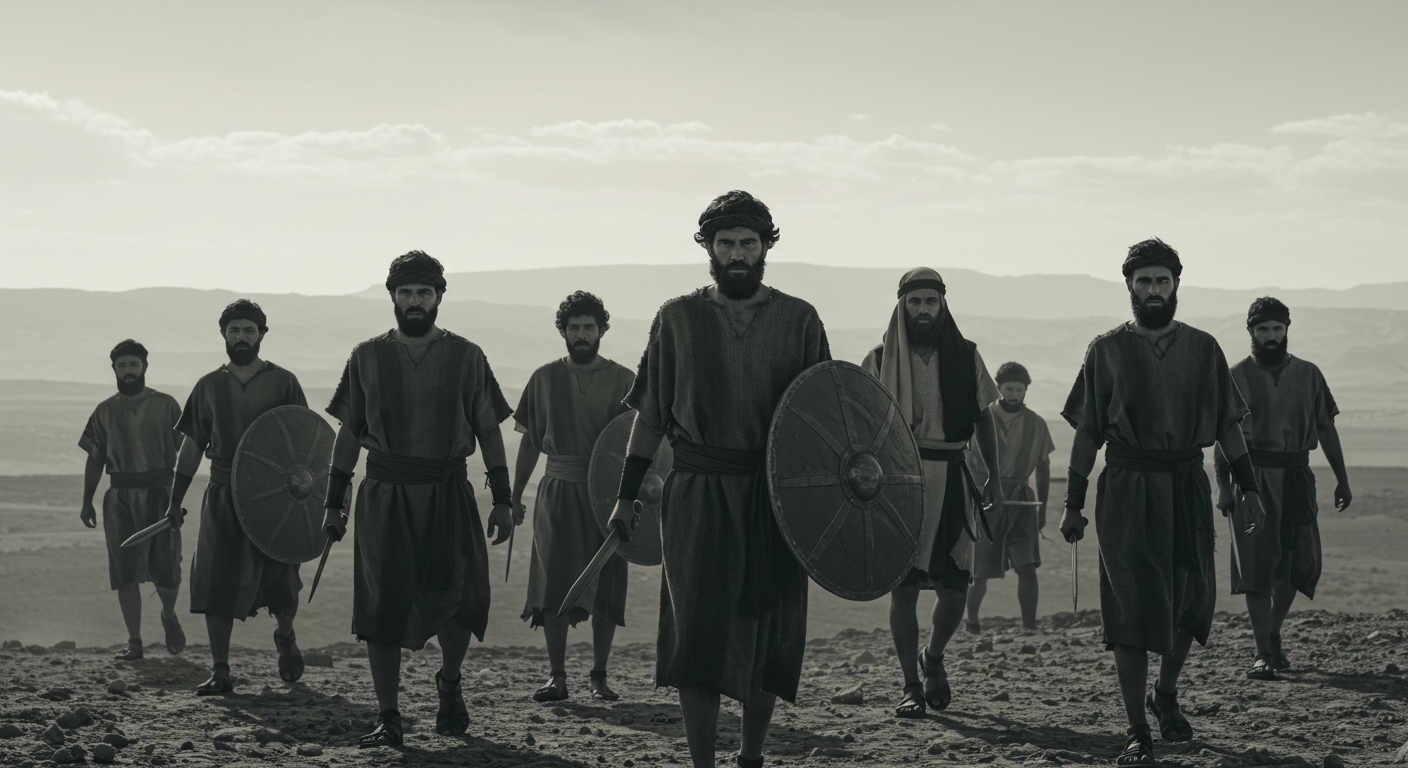
The Zealots – Luke 6:15
The Bible is a vast and intricate tapestry of stories, individuals, and teachings, each contributing to the rich narrative of faith and human experience. Among those narratives, the Zealots emerge, a group depicted in the New Testament. They are not a singular character but represent a fervent movement, deeply woven into the backdrop of Judea during a period of political unrest and religious fervor. The Zealots’ mention in Luke 6:15, specifically through the character of Simon the Zealot, offers a window into the complexities of faith and politics, as well as how these forces can drive individuals in their life’s journey.
The Zealots are significant in biblical history because they were not just fighters in a political sense but warriors of passion and belief. Their involvement with revolutionary activities highlights a layer of tension within the social and political landscape of the time—a tension that often mirrors the dilemmas faced by individuals today, torn between secular and spiritual obligations.
Simon the Zealot – An Introduction
In the roll call of Jesus’ apostles, Simon the Zealot holds a unique position. His designation as “the Zealot” serves as an immediate identifier, distinguishing him from Simon Peter and alluding to his past or present ideological leanings. Classified as a man of fervor and action, Simon’s journey from a likely radical perspective to a dedicated follower of peace and reconciliation through Jesus’ teachings is compelling. His significance is not just in his call to discipleship but also in what he represents: a testament to the transformational power of faith.
Their Story in the Bible
When exploring the story of the Zealots in the Bible, Simon the Zealot serves as an intriguing starting point. Mentioned in Luke 6:15, Simon’s title hints at his previous association with the Zealots, a group known for their fierce opposition to Roman rule and their passionate defense of Jewish autonomy. While the New Testament typically does not delve deeply into the political dimensions of its characters, Simon’s nickname suggests a man whose earlier life was marked by zeal and possibly, militant activism.
One can imagine Simon’s participation in the political and social activities contemporaneous with Jesus’ ministry—efforts to counter Roman occupation and influence. However, Simon’s presence among Jesus’ disciples marks a turning point; it’s a signal of transformation where his revolutionary fire is redirected towards a mission of spiritual revolution. His journey’s essence is about relinquishing violence in favor of profound spiritual awakening, aligning with Jesus’ message of love and redemption over conquest and rebellion.
Simon’s inclusion also reflects Jesus’ radical inclusivity, exemplifying how the Christ message transcends societal labels and political affinities. Despite the absence of detailed biblical records on Simon’s exploits post-Jesus’ resurrection, his continued presence in the apostolic fold underscores a narrative of unity and purpose that the early Christian movement was to champion—a narrative of hope, redemption, and divine love that moves beyond mere earthly strife.
Lessons from the Zealots’ Life
From the accounts of Simon and the Zealots, several profound lessons resonate. Firstly, the importance of transforming zeal into a force for good becomes apparent. Passionate convictions, when aligned with divine purposes, can lead to monumental changes. Simon’s dedication illustrates how the energetic pursuit of justice and truth should align with love and mercy.
Secondly, the Zealots challenge what it means to be committed to a cause. Their story asks: Does your commitment to a belief encompass the potential to turn that dedication towards the greater good of spiritual growth and community? The lesson here is to ensure that one’s zeal is timeless and focused on eternal principles, rather than temporary power struggles or fleeting victories.
Lastly, Simon’s story provides insight into how God calls all people, despite past affiliations or actions, to a higher purpose. It encourages the trust that change is possible and that divine calling can redefine our paths. Being a disciple requires humility, acceptance, and sometimes the courage to walk away from entrenched passions that no longer serve a God-centered purpose.
Connection to Today’s World
In today’s world, with divisions seeming sharper than ever, the Zealots’ historical narrative still speaks volumes. Individuals and societies are often caught in their struggles, whether political, social, or spiritual. The fervor and mission of the Zealots prompt reflection about our loyalties and what we are zealous for.
In an age of activism and reform, Simon the Zealot’s journey calls contemporary individuals to consider whether their revolutionary potential and passion are directed towards causes that reflect beneficial change and spiritual enlightenment. Are your actions rooted in a desire to uplift and heal, or do they risk perpetuating cycles of division and discord?
This principle applies not just globally but also within personal realms, where every decision we make about worthiness and alignment can catalyze transformation in ourselves and, subsequently, in others. The essence of such a transformation might be found in aligning with a divine plan that transcends self-interest in seeking a collective welfare grounded in love, justice, and peace.

Key Bible Verse
A particularly poignant verse regarding Simon the Zealot is Luke 6:15:
“…and Matthew, and Thomas, James son of Alphaeus, and Simon who was called the Zealot.”
This verse, in its simplicity in listing the apostles, underscores Simon’s unique role and identity within the group. It hints at the myriad backgrounds and perspectives Jesus welcomed, illustrating the kingdom of God as one of diversity. Simon’s epithet as “the Zealot” reminds us of the vast potential for change within each of us when faced with a call to surrender fervor to divine love.
Thought-Provoking Question
When faced with personal fervor or societal movements, do you commit to channeling that energy towards actions that foster unity and peace, as exemplified by Simon’s journey from zealot to devoted follower of Christ?
Optional Add-Ons
Historical/Cultural Context
The term “Zealot” derives from a historical period when Judea was under Roman control—a time of taxation and cultural imposition that was fiercely opposed by various groups. The Zealots emerged as a radical faction advocating for Jewish independence, often resorting to violence and insurrections. Their story reflects an era of turbulence and transformation, highlighting the complex interplay of politics, faith, and identity.
Comparison with Other Characters
Comparing Simon the Zealot with the Apostle Paul provides insights into transformative journeys within the Christian narrative. Paul, initially a persecutor of Christians, experienced a dramatic conversion to become one of Christianity’s most ardent advocates. Likewise, Simon’s move from possible radicalism to discipleship illustrates how personal encounters with Christ can redirect life paths toward peace and evangelism.
Prayer
“Lord, guide us to channel our zeal towards compassion and understanding. Help us see beyond divisions, transforming our passions into actions that reflect your love and grace. May our allegiance always be to your purpose, seeking unity among your followers. Amen.”


